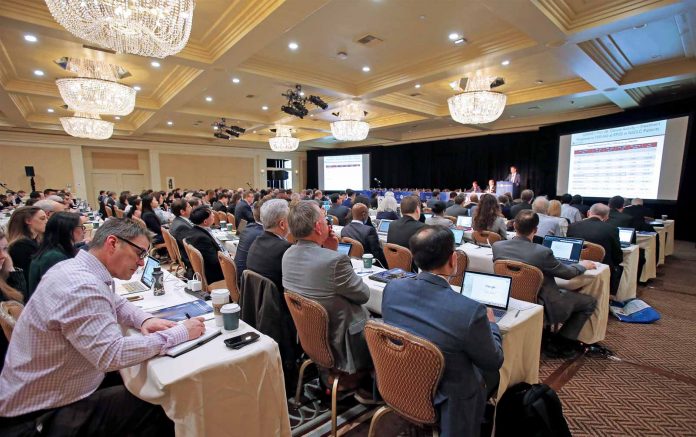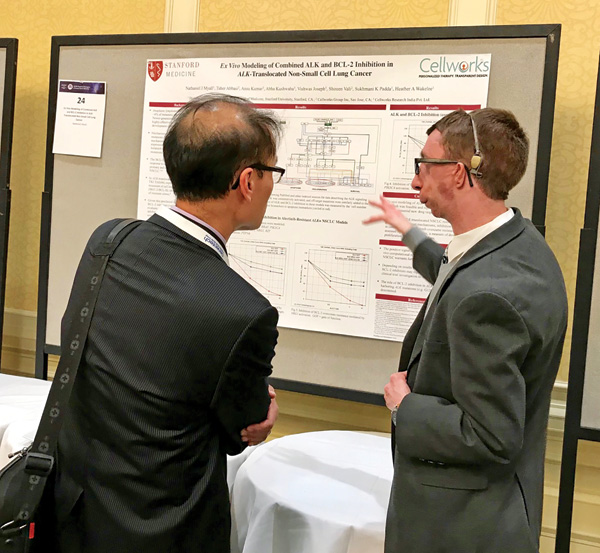
By Paul A. Bunn, Jr., MD, FASCO
Posted: May 27, 2019
The 19th annual IASLC Targeted Therapies of Lung Cancer Meeting was held in Santa Monica, California, from February 20 to 23, 2019. The meeting chairs, Roy S. Herbst MD, PhD; Leora Horn, MD, MSc; Suresh S. Ramalingam, MD; and I created a program to be proud of and are happy to consider any feedback on the meeting for future improvements. Records were set for the number of abstracts submitted, the number of fellows and junior faculty who attended, and for the overall attendance.
The meeting started with remembrances of Adi Gazdar, MD, and Waun Ki Hong, MD, presented by Dr. Herbst; John Minna, MD; Tetsuya Mitsudomi, MD; and Giorgio Scagliotti, MD, PhD. These two lung cancer luminaries passed away shortly before the meeting and had contributed greatly to the meeting and to the thoracic oncology landscape over the years. The keynote speaker was Dr. Minna, who presented information about identification and targeting of lung cancer vulnerabilities that could lead to new therapeutic strategies and drugs. The faculty dinner speaker was Joan Schiller, MD, who gave a highly personal talk on our therapeutic progress in lung cancer as seen through her eyes over the years.

Debate Sparks Consensus
The program format was changed slightly from previous meetings to allow presentations on future directions at the end of each target session. Debates on critical issues were instructive, as well as engaging. It was clear from the presentations that both immunotherapies and molecularly defined tyrosine kinase inhibitors (TKIs) have dramatically changed the way lung cancer is evaluated and treated. All patients with advanced-stage lung cancer require molecular and immunologic biomarker testing before therapy is instituted. There was considerable debate about the optimal biomarkers and the most rapid and cost-effective way to achieve the biomarker testing, but PD-L1 scoring and next-generation sequencing have emerged as the current standard. The sessions on ALK, ROS1, TRK, and RET fusions made it clear that initial therapy for patients with these drivers should be an approved TKI; and it was equally clear that new TKIs that cross the blood–brain barrier and can target resistance mutations are emerging. Mutations in exon 20 of EGFR and HER and splicing mutations in MET have been challenging targets, but new agents are being investigated that may prove to be sufficiently effective for first-line use.
In addition, new strategies for immune therapy have emerged including personalized approaches and vaccines, as well as agents targeting the tumor microenvironment or other costimulatory or inhibitory targets. These treatments are being studied alone and with approved checkpoint inhibitors.
New Targets, New Hope
The standard therapy for patients with advanced SCLC has finally changed, based on recent data showing a survival advantage for the addition of atezolizumab to etoposide/platinum doublet chemotherapy. Agents targeting a number of important new targets are emerging and provide hope that continued advances will emerge. New EGFR and AXL TKIs are providing hope for future combinations and effective treatment with the development of resistance. Antibody–drug combinations and CAR-T cells are also proving effective in patients with specific targets. Developing new agents for the treatment of pleural mesothelioma has also been challenging, but there are new areas of research, including immunotherapies, antibody drug conjugates, and vaccines.
Although these new targeted therapies and immunotherapeutic approaches were initially developed in stage IV disease, exciting data on their use in stage III NSCLC combined with chemotherapy and radiotherapy, as well as in stages IB-IIIA combined with surgery and chemotherapy, show promise with the prospect of heightened cure rates in patients with earlier-stage disease.
Agents targeting other emerging targets such as FGFR/PDGFR and VEGFR inhibitors; PI3K, MTOR, and DNA repair inhibitors; CDK4/6 inhibitors; bromodomain inhibitors; aurora kinase inhibitors; and other miscellaneous targets are proving safe but remain in early development. Overall, there have been a record number of recent drug approvals in lung cancer; in aggregate, these agents have transformed the therapeutic landscape and have improved outcomes for many of our patients. The new agents and strategies featured at the meeting provide clear evidence that our outcomes in lung cancer are likely to continue to improve over time. ✦
About the Author: Dr. Bunn is distinguished professor of Medicine and the James Dudley Endowed Professor of Lung Cancer at the University of Colorado School of Medicine. Dr. Bunn is a prior IASLC President and was CEO of the IASLC from 2003-2013.










